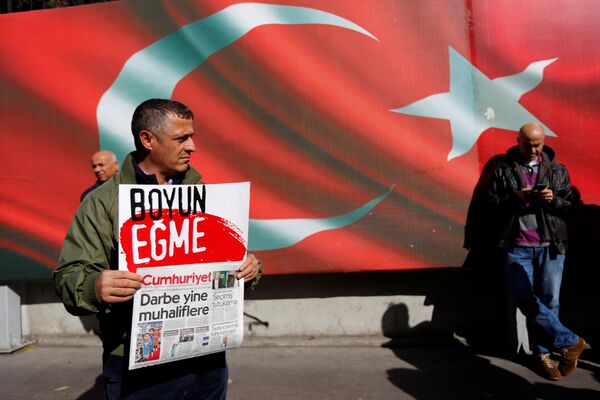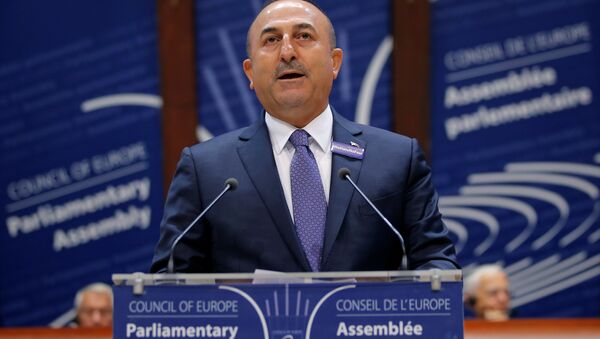Cavusoglu told Swiss newspaper Neue Zurcher Zeitung, Thursday (November 3), that "Our patience is running out" after months of negotiations to conclude the migrant deal have failed to broker the visa-free access program.
Turkey has responded to demands from Brussels and amended its anti-terrorist legislation, the minister said.
"We stick to the agreements with the EU and expect Europe to do the same. If this does not happen, we will suspend the agreements with the EU in this area."
When asked if this would happen, Cavusoglu replied:
"We do not wait until the end of the year. We actually said at the end of October.
"We have stuck to the agreements with the EU and expect Europe to do the same. If this does not happen, we will suspend the agreements with the EU in this area. We will not wait until the end of the year. We actually said the end of October," Cavusoglu said.
The EU-Turkey migrant deal — originally proposed in March 2016 — was designed to stem the flow of migrants crossing into Europe via Turkey, which had led to a massive influx of people flooding EU countries via the West Balkans route and the Aegean Sea.
Troubles Ahead
However, as part of the deal, the EU was to allow Turkish citizens visa-free access to Europe — originally by the end of July, then the end of October — as well as the acceleration of Turkish accession into the EU.
However, the whole deal has run into trouble — firstly because many NGOs dealing with refugees joined the UN refugee agency UNHCR in expressing doubts over Turkey's recognition as a "safe third country" under the terms of the Geneva Convention. They raised doubts over the conditions in which refugees were being kept in Turkey, amid allegations of rough treatment and poor facilities.

Meanwhile, Turkish President Recep Tayyip Erdogan's clampdown on the media, opposition figures and many civil servants since the failed coup in July, has brought condemnation from many in the EU over the country's record on freedom of speech and human rights — made worse by Erdogan's threat to bring back the death penalty, which was rescinded in order to pave the way for EU accession.



